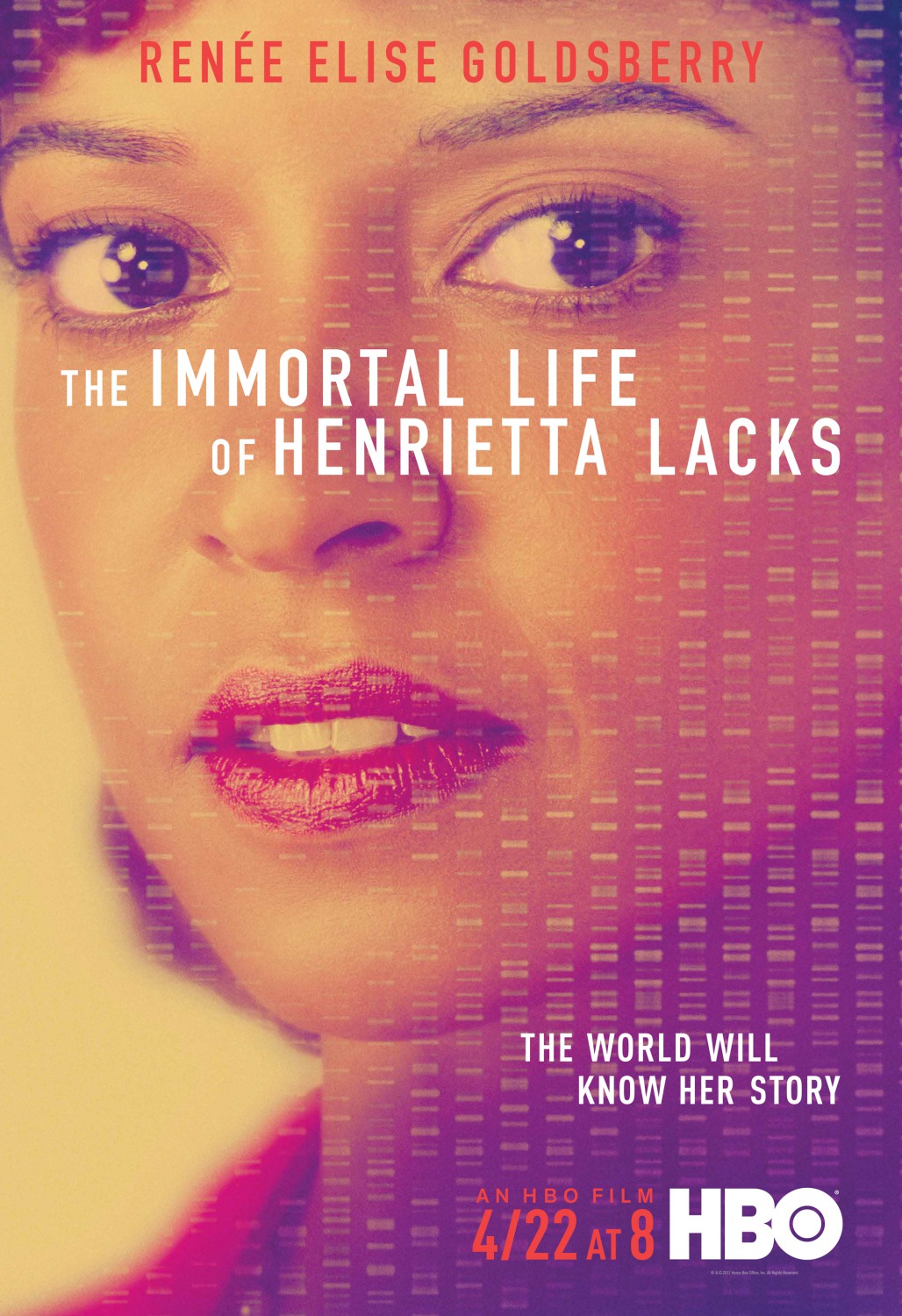

These dual efforts begin with the cleverly designed opening credits.

On the other, just as importantly, it labors to give Henrietta’s children back a living image of their mother whose privacy and very identity were, in effect, taken away from her and from them.

On the one hand, it strives to connect the story of the HeLa cells to our long, chilling history of racial exclusion and exploitation. The Immortal Life of Henrietta Lacks works very hard and, on the whole, with impressive success to balance two goals. Instead, The Immortal Life of Henrietta Lacks deftly and touchingly opens up dimensions in the characterization of the women who inspired the book - both Henrietta herself and her longsuffering but determined daughter, Deborah, played powerfully by the film’s co-producer, Oprah Winfrey - that certainly cannot replace but which can, nevertheless, enrich readers’ appreciation of Skloot’s impressive journalistic accomplishments in the book. Wisely, director Wolfe doesn’t really even try.
The immortal life of henrietta lacks 2017 movie#
Clearly, no movie could hope to capture all of the rich and often horrifying history that Skloot’s 400 pages take the time to convey. The lives of Henrietta Lacks and her children serve up an often agonizing object lesson in the racialized and starkly segregated triumphs of the American economy, the veritable triumphs of the biomedical industry inextricably intertwined with our culture’s long and infamously sordid history of exploiting the lives of vulnerable populations for profit. This is deeply tangled territory for a film to navigate. So when Skloot - a determined young white journalist who had heard of Henrietta’s magical cells in a biology course - started cold-calling the family in the late ’90s to ask questions for the book that she was hoping to write about their mother, the Lacks family was hardly quick to trust her, much less to divulge their mother’s story. The subsequent painful experiences with journalists, attorneys, and con men left the surviving members of the Lacks family angry and distrustful, wondering how corporatized medicine could make billions from the sale and usage of their mother’s cells when her children couldn’t even afford insurance or basic medical care. Losing her when they were all too young to fend for themselves, Henrietta’s children only learned of their mother’s remarkable health care legacies decades later, when her real name was finally revealed and various opportunists came sniffing around for descendants who could provide them with the backstory of the mother of modern biomedicine. It is no exaggeration to say that everyone whose family has sought medical care over the last half-century has benefitted, in one way or another, from Henrietta Lacks.īut, as both the book and the film make clear, it is also no exaggeration to say that those benefits almost completely excluded Henrietta’s own children, the ones whom she would have most wished to benefit from the billion-dollar industries that her cells helped to give birth to. The Immortal Life of Henrietta Lacks carefully combines motifs of exclusion and inclusion as it evokes the story of a woman whose cancer cells miraculously survived her, giving birth to a biomedical industry that would go on to develop a host of new treatments - ranging from the polio vaccine to in vitro fertilization to AIDS cocktails and beyond - that were specifically enabled by the HeLa cells (the name taken from the first two letters of Henrietta Lacks’s names). Wolfe and HBO Films have now collaborated to bring an inevitably incomplete but still lovely, loving film version of Skloot’s complex and compelling book to the screen. Exclusion and Inclusionĭirector George C.

Which is to say, in Skloot’s book too, the manifold sins of American racism have to be dealt with honestly, openly, and communally before we among the living can hope to help our ghosts finally rest in some sort of peace. In Skloot’s book too, we read about a black woman whose body was treated as a means of profit without her consent - with massive, generation-spanning consequences for her children and theirs. In her 2010 nonfiction bestseller, The Immortal Life of Henrietta Lacks, journalist Rebecca Skloot spins out another complex American ghost story that both renews and deepens several of Morrison’s central themes.


 0 kommentar(er)
0 kommentar(er)
